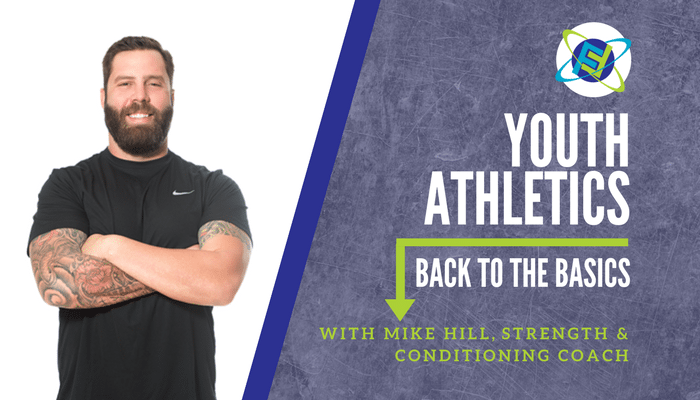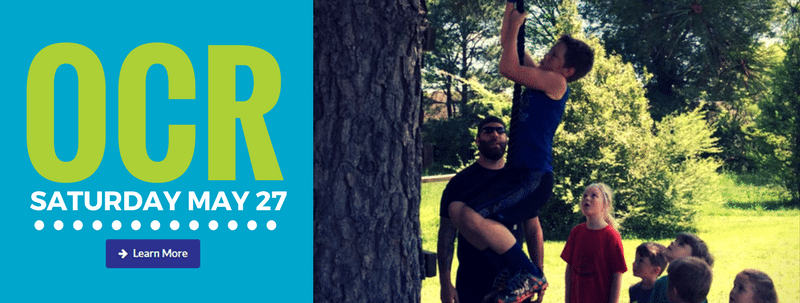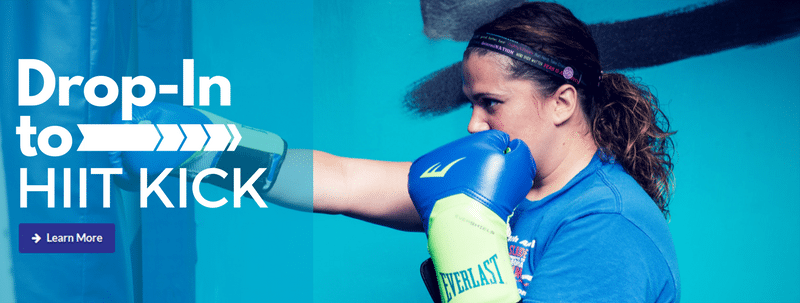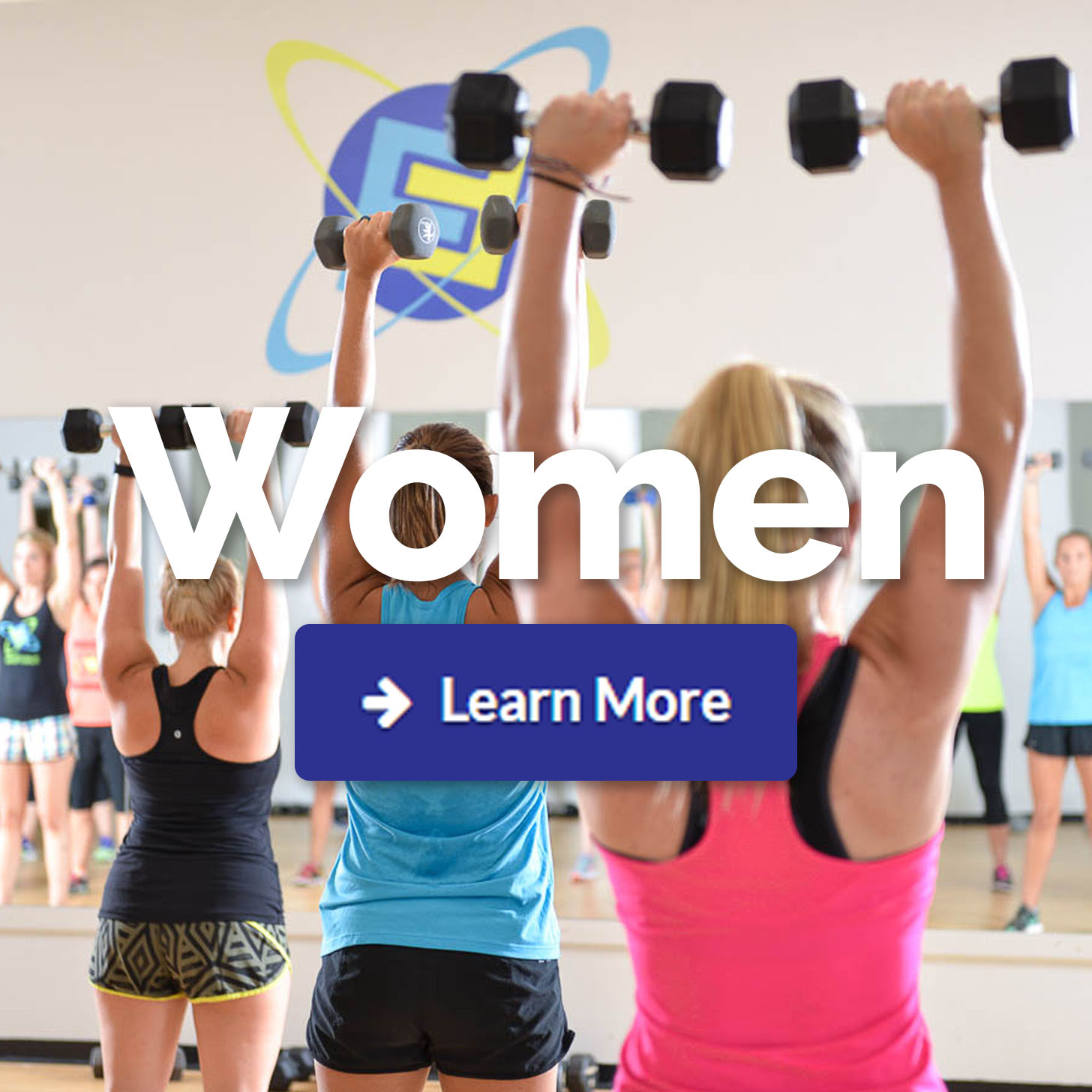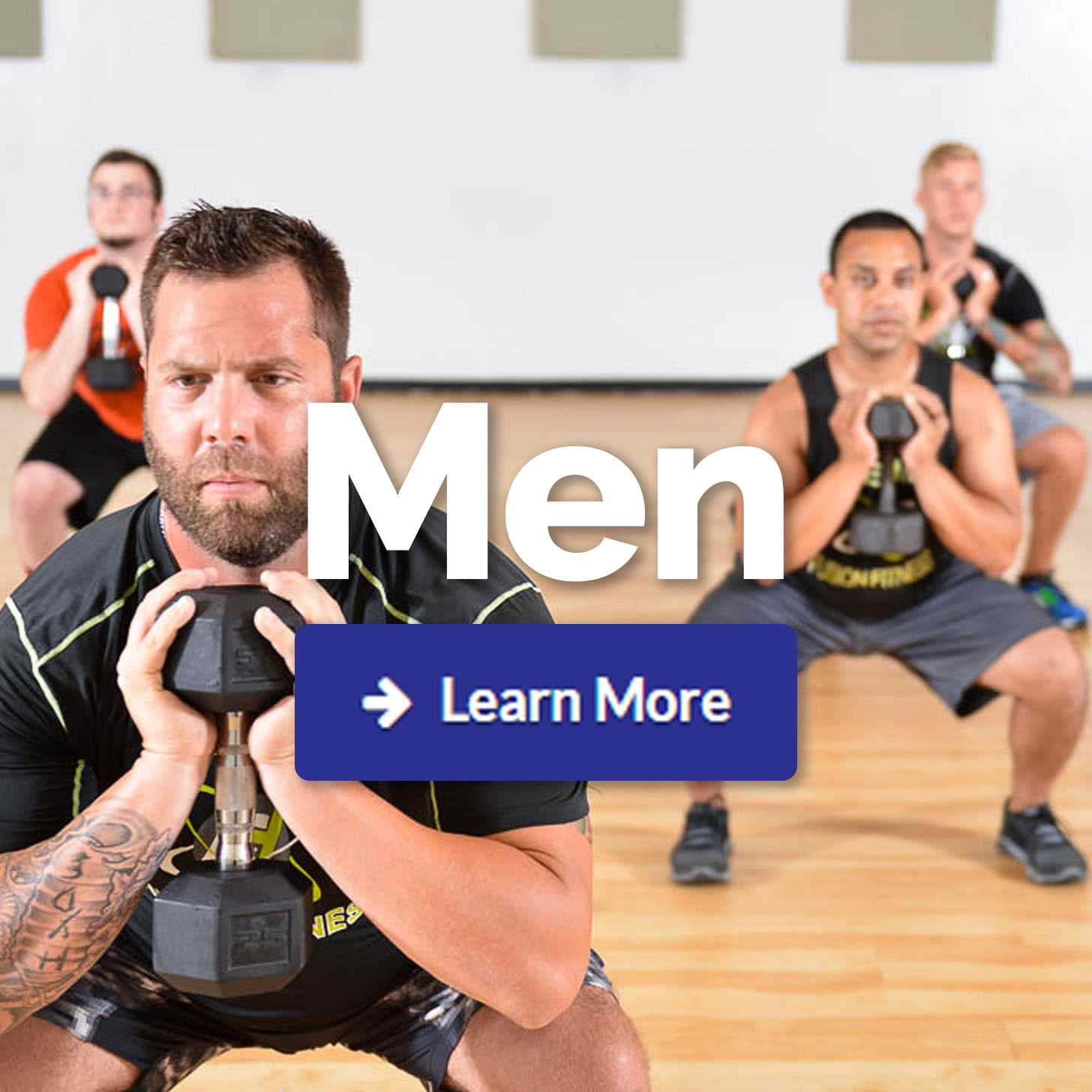Being a personal trainer, strength/conditioning coach, and having three active, athletic boys, I am often asked for advice on training young athletes. I work with and coach athletes of varying ranges of fitness and skill level who do a variety of different sports. There is one thing that keeps ringing true – nine times out of ten, we have to bring them BACK TO THE BASICS.
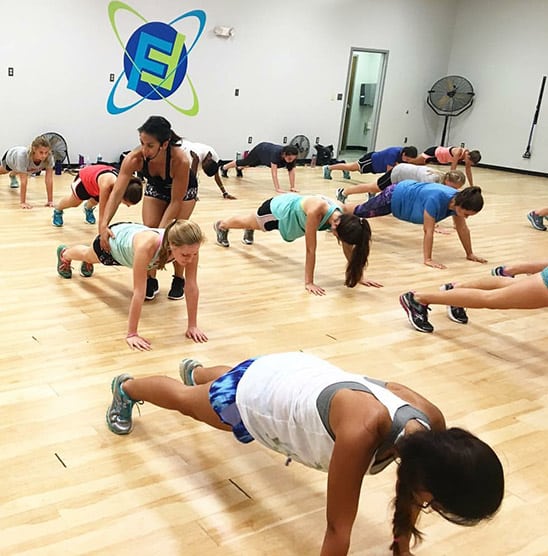
Stretching and core muscle fundamentals are essential to ensure a young athlete is getting the most out of a practice or training session (and to prevent injury).
Children are constantly growing, which means they need to be continually challenged. Stretching and core muscle fundamentals are essential to ensure a young athlete is getting the most out of a practice or training session (and to prevent injury). It’s all about developing their motor skills. We were born to run, swim, bike, play, jump, be active and SWEAT!! Active kids tend to grow up to be more active adults. Let me remind you of what my wife constantly ‘preaches’: having 5-7 sports practices a week does NOT mean a child is fit and healthy.
Let’s use Basketball as an example. Things like flexibility and core strength, are the FOUNDATION that allows an athlete to increase their jump.
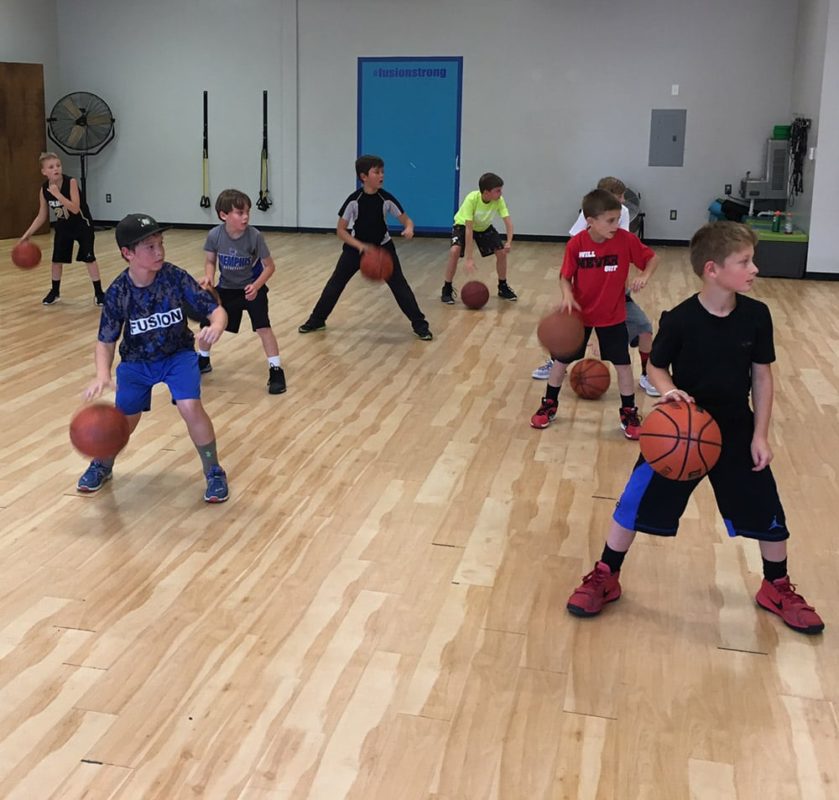
At Fusion Fitness, we recommend a combination of both, sport-specific training and basic fitness training. Let’s use Basketball as an example. Yes, you 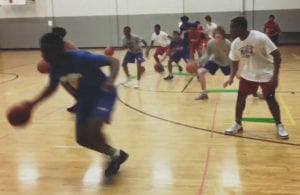 do have to work on skills such a lateral quickness and increasing your vertical jump. What most coaches leave out of training, however, are things like flexibility and core strength, which are the FOUNDATION that allows an athlete to increase their ability to vertical jump. Sports-specific training can be a misleading word when you are dealing with athletes. They have to have the fundamentals down in order to be a well-rounded athlete (i.e. proper squats, push-ups, planks, and plyometrics). The more advanced an athlete becomes, the more you have to add in exercises that require more focus, complexity, and strength. The last time I checked, these fundamentals are being done on a professional level as well, so why not have kids doing them as well? As a basketball player, shooting a thousand free throws does not make you a better athlete…just a better shooter. It only focuses on ONE part of your game.
do have to work on skills such a lateral quickness and increasing your vertical jump. What most coaches leave out of training, however, are things like flexibility and core strength, which are the FOUNDATION that allows an athlete to increase their ability to vertical jump. Sports-specific training can be a misleading word when you are dealing with athletes. They have to have the fundamentals down in order to be a well-rounded athlete (i.e. proper squats, push-ups, planks, and plyometrics). The more advanced an athlete becomes, the more you have to add in exercises that require more focus, complexity, and strength. The last time I checked, these fundamentals are being done on a professional level as well, so why not have kids doing them as well? As a basketball player, shooting a thousand free throws does not make you a better athlete…just a better shooter. It only focuses on ONE part of your game.
They have to have the fundamentals down in order to be a well-rounded athlete (i.e. proper squats, push-ups, planks, and plyometrics). The more advanced an athlete becomes, the more you have to add in exercises that require more focus, complexity, and strength.
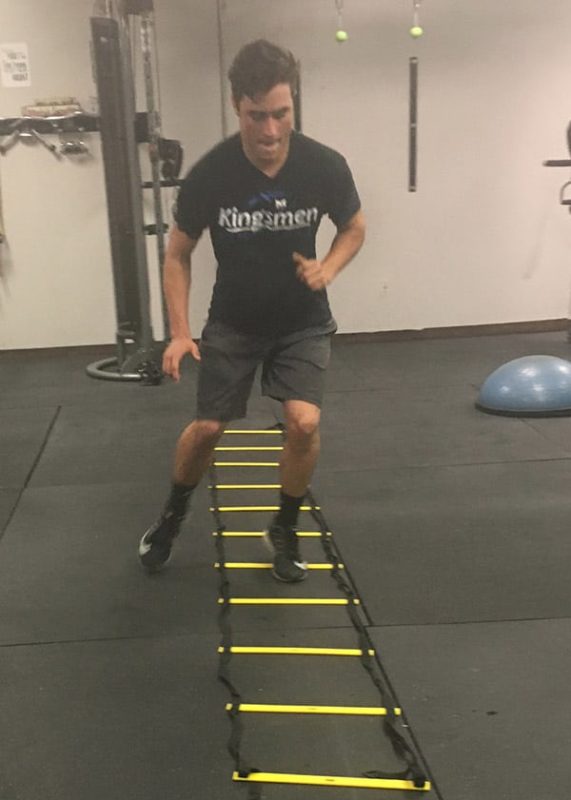
It is imperative that young athletes develop a basic level of fitness and physical skill. EVERY PART OF THE BODY IS CONNECTED!! Just because you are a soccer player doesn’t mean you only work on your legs. Think about all the bumping, pushing, shoving, and directional changes that go into being a soccer player. When a strong body works well, you are the least likely to be injured. Many injuries are a result of skill-specific training and not overall athletic training. It is the  same thing with sports training. Why be a ‘sports-specific’ athlete when you are, in fact, an all-around athlete. I tell coaches all the time: they are the sports specific expert and I am the Athletic Performance Coach (which includes strength, speed, and conditioning). I’m here to improve kids’ athleticism, regardless of their sport. Keep in mind–EVERY athlete is different. Running, jumping, directional changes, acceleration/deceleration, flexibility, balance and core strength are needed in all sports and all sports require athletes. You have to have a solid foundation in place, and build up from there. It’s all about the BASICS.
same thing with sports training. Why be a ‘sports-specific’ athlete when you are, in fact, an all-around athlete. I tell coaches all the time: they are the sports specific expert and I am the Athletic Performance Coach (which includes strength, speed, and conditioning). I’m here to improve kids’ athleticism, regardless of their sport. Keep in mind–EVERY athlete is different. Running, jumping, directional changes, acceleration/deceleration, flexibility, balance and core strength are needed in all sports and all sports require athletes. You have to have a solid foundation in place, and build up from there. It’s all about the BASICS.
Getting ‘Back To Basics’ with athletic training.
Mike & Bartlett High School Varsity Basketball Team after working on the Fundamentals.
Summer is almost here and we’re mixin’ it up! View our full schedule HERE.


